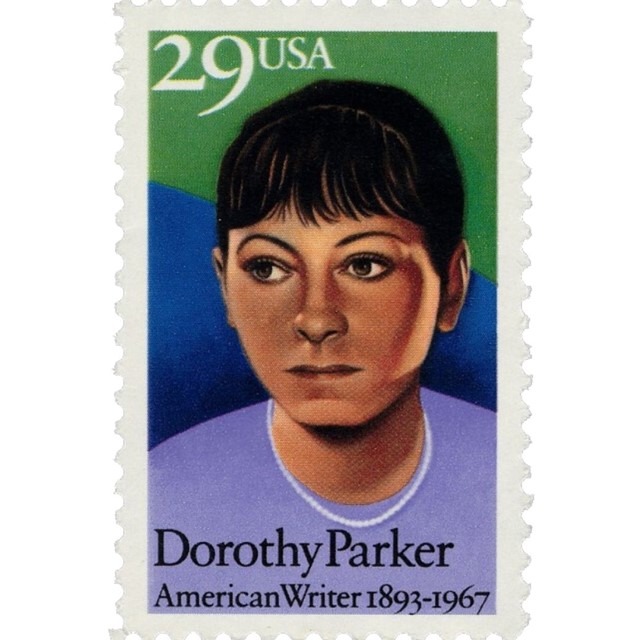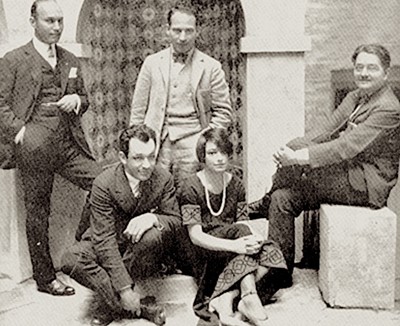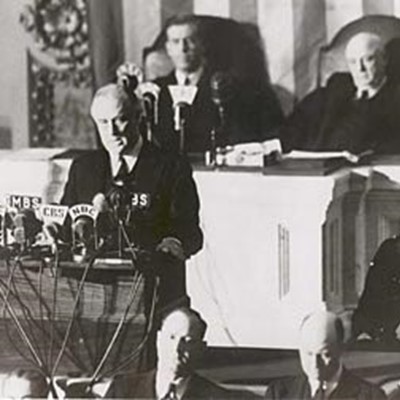
The Buckley School's founder believed all public speakers should hone their presentation skills by reading poetry out loud. We keep that worthwhile practice alive by including a poem in our magazine each month for you to read aloud. Above, a commemorative U.S. Stamp featuring Dorothy Parker issued on August 22, 1992, designed by Greg Rudd. (Copyright United States Postal Service. All rights reserved.)
"The Round Table was just a lot of people telling jokes and telling each other how good they were. Just a bunch of loudmouths showing off, saving their gags for days, waiting for a chance to spring them."
– Dorothy Parker's later-in-life reflection on the famed group who met at the Algonquin Hotel
A prolific writer and founding member of the Algonquin Round Table, Dorothy Parker is still famous for her wit—though she herself grew to dismay that reputation.
Born August 22, 1893, Parker grew up on the Upper West Side of New York City. Her mother died when Parker was just five years old. Parker’s father physically abused her, and Parker completed her education by attending a finishing school in New Jersey.
She was just 19 when she sold her first poem to Vanity Fair. Her reputation zoomed forward four years later when she began writing theater reviews for Vanity Fair and became part of the Round Table, a group of writers and editors who met at the Algonquin Hotel for lunch.
 Dorothy Parker in 1919 with Algonquin Round Table members and guests (l–r) Art Samuels, Charles MacArthur, Harpo Marx, and Alexander Woollcott.
Dorothy Parker in 1919 with Algonquin Round Table members and guests (l–r) Art Samuels, Charles MacArthur, Harpo Marx, and Alexander Woollcott.
Parker found success writing criticism, essays, poems, fiction, and screenplays. Her first book of poems was a bestseller. She won the O. Henry Award for best short of 1929 for "Big Blonde." She co-wrote the 1937 film A Star is Born and was nominated for an Academy Award for best screenplay.
Her personal life was famously filled with ups and downs. As she grew older, she moved from her role as clever flapper of the 1920s to involvement in social movements of the 1930s, 40s, and 50s. She died in 1967, leaving the bulk of her estate to Martin Luther King, Jr., and after his death, to the NAACP.
Below, a poem by Parker for you to read aloud—one that will reward you for employing well-timed pauses.
Song in a Minor Key
By DOROTHY PARKER
There's a place I know where the birds swing low,
And wayward vines go roaming,
Where the lilacs nod, and a marble god
Is pale, in scented gloaming.
And at sunset there comes a lady fair
Whose eyes are deep with yearning.
By an old, old gate does the lady wait
Her own true love's returning.
But the days go by, and the lilacs die,
And trembling birds seek cover;
Yet the lady stands, with her long white hands
Held out to greet her lover.
And it's there she'll stay till the shadowy day
A monument they grave her.
She will always wait by the same old gate, —
The gate her true love gave her.






